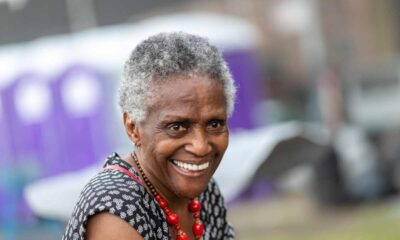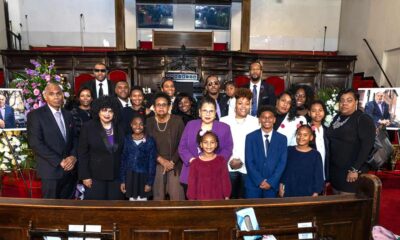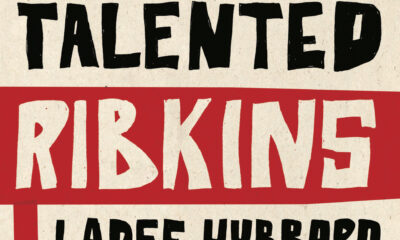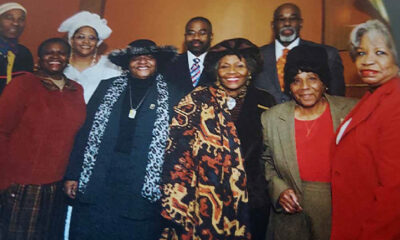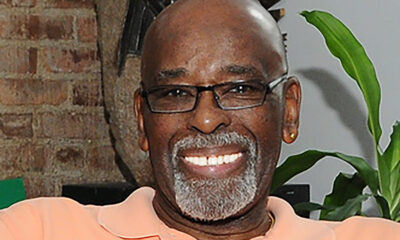Community News
Dr. Albert Vann
In the Words of His Friends
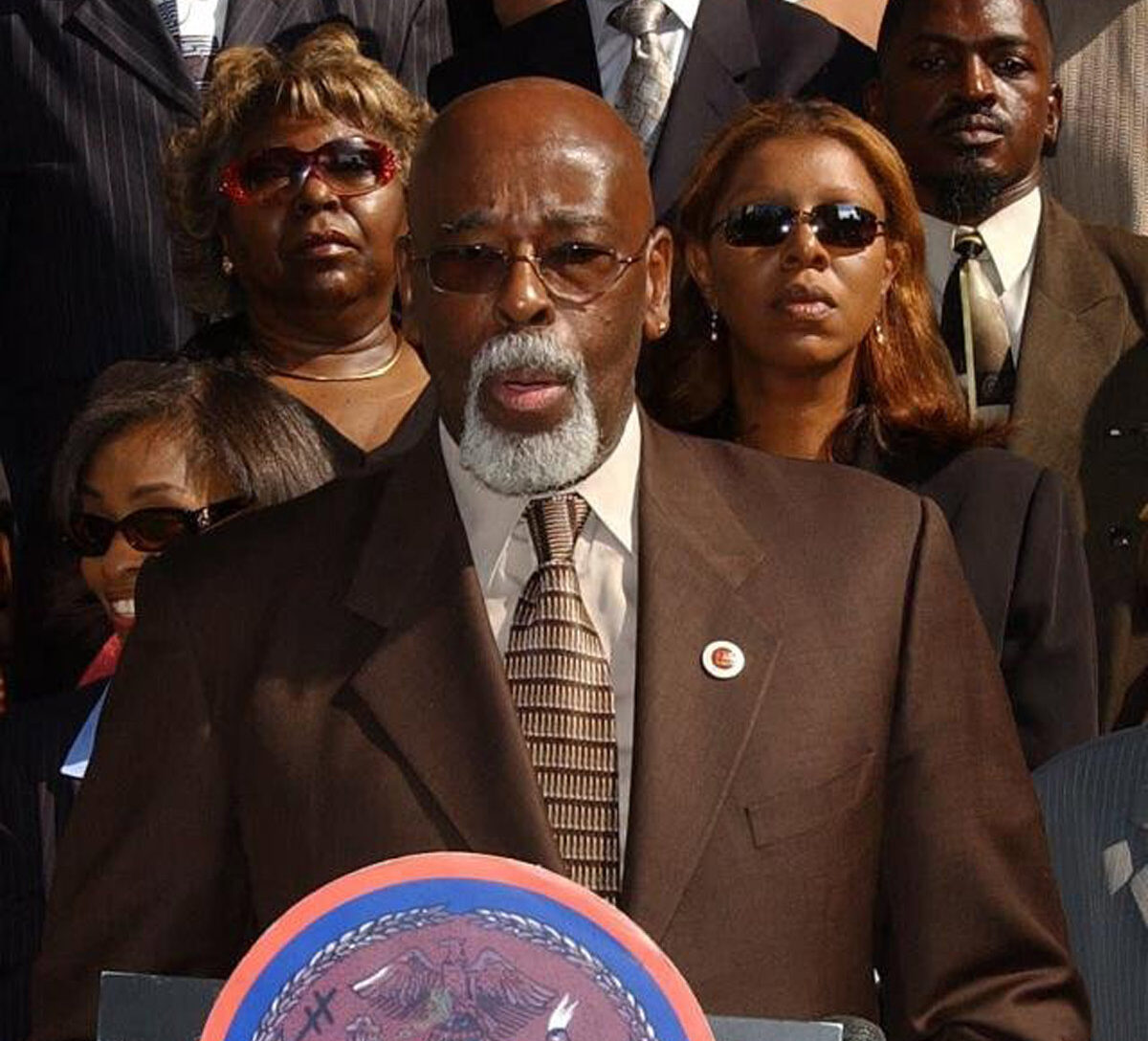
Visionary Leader
Esmeralda Simmons, Esq.
A Mighty Tree Has Fallen. We mourn the passing of a great man.
As an independent political player, I was proud to call Albert Vann my leader, because he had a vision for my community. He stood for something so crucially important to me – the freedom and self-determination of Black Folks in Brooklyn and New York City.
His steadfast dedication to that pursuit distinguished him from most leaders and politicians. Albert Vann was a leader of leaders.
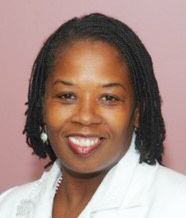
He was a Visionary
He saw where Black folks stood in Brooklyn, in New York City, and the world. He envisioned where we could be, just as MLK saw “the Promised Land.” His was an informed vision. He studied history and current events. He was a man of the times and his was a revolutionary time for Black folks. Around the globe, Africans fought and won liberation from European colonialism, often through armed struggle. The massive local organizing of Black folk during the Civil Rights Movement crushed the Jim Crow reality of the USA, and gave rise to the Black Power Movement.
As a leader, it’s one thing to situate your people as a goal, within your local surrounds. Al Vann was a visionary who instead situated Bedford Stuyvesant, his local neighborhood, and Brooklyn within the Global South, juxtaposed on the world stage against the West and East eco-social position and status. His perspective was that the people of Bed Stuy, Brooklyn, New York City and all of New York State should strive for the same freedoms, liberties and human rights espoused in the founding documents of the US.
And that we should enjoy equitable opportunities and the same standard of living enjoyed by persons in leading economies and democracies across the globe.
He dreamt big and led by Inspiration
He faced off against systemic racism in New York State. Why did Al Vann become an elected official? To get Black people on voice in self-governance and in the representative government existing in New York State that seems ordinary now, now, but back in the early 1970’s there were very few Black elected officials in Brooklyn — notwithstanding the fact that at least 1/3 of the borough — was populated by Black people. Indeed, Fort Greene Crown Heights, Flatbush, South Crown Heights, East New York, East Flatbush were densely populated by Black folks. All of those areas were represented by white politicians; it was very much like a municipal colonial system of governance where whites were in power. Brooklyn politics was controlled by then Democratic County political boss Meade Esposito of Canarsie and very little attention was paid to the needs of Brooklyn’s black residents.
As an insurgent, Al Vann ran independently and fought against the party bosses. His methods were strikingly similar to those of the Civil Rights and Black Power movements here and the liberation movements abroad:
inspire residents with the idea of controlling their communities through the electoral process!
organize!
identify community needs!
address community needs, by priority!
Seize power by the ballot!
Who Was Al Vann?
Albert Vann, born and raised in Bed Stuy. He was an ex-Marine, a public school teacher. He was quiet, thoughtful and soft spoken. He had been a leading figure in the fight for community control of public education during the Ocean Hill/ Brownsville public school struggles. He organized and served as the president of the African American Teachers Association. He worked closely with fellow educators, Jitu Weusi (then Les Campbell) and Rhody McCoy to organize parents, students, and Black and Latino public school teachers around basic equity and empowerment issues during and after the Ocean Hill-Brownsville community control of education struggle.
Immediately following that experience, Al Vann chose to run for office while many progressive Blacks shied away from electoral politics. But, Al Vann’s vision of community empowerment was broad: He inspired young professionals and local residents to become politically active and take control of their local elective offices positions and institutions; he was an institution builder— He worked to create the dozens of community organizations like Bedford-Stuyvesant Restoration Corp., Medgar Evers College-CUNY, SUNY-Downstate University Hospital, and Bedford Academy H.S., and dozens of supporting non-profits; he worked hard to preserve many local existing institutions such as Interfaith Hospital, Boys & Girls H.S., Weeksville Historical Society, and the Magnolia Earth Tree Center of Bedford-Stuyvesant.
Coalition for Community
Empowerment
Perhaps Al Vann’s greatest quality was that he inspired other leaders to work together to develop common goals and solutions to community needs and to expand Black political power in Brooklyn. As the leader of the Coalition for Community Empowerment (CCE) in the 80s and 90s, CCE successfully ran Black screened candidates for public offices and party positions across the “colonized” areas, defeating long term incumbents and dramatically increasing the number of Black elected officials. These victories generated respect from other Black elected officials in Brooklyn, and Black and Latino elected officials in the city. CCE was, in fact, a “round table” of community leaders elected officials and aspiring candidates to address community political empowerment and expanded Black political power throughout Black Brooklyn. Al Vann inspired young progressive black professionals to become involved in electoral politics and under his leadership developed some of NYC history’s strongest teams of election and political campaign operatives. His lieutenants included political strategists John Flateau, Michael Nairne, Roger Green, Ed Miller, and Roger Fortune, with John becoming a leading election technician in the NYS (and this was before computers).
Al Vann attracted college professors and teachers to be leading members of his campaign team with Audrey Bynoe leading campaigns and Richard Jones handling phone banks for research and GOTV. Organized campaign fund raising was expanded to include regular community members, as well as big donors. Similarly, he attracted a pair of young attorneys, Paul Wooten, Esq. and, this writer, Esmeralda Simmons, Esq.
When Al Vann asked the two young lawyers to take on the protection of Black and Latino insurgent candidates running under the empowerment banner, they created a mini-army of young volunteer attorneys. They trained them in Election Law and successfully protected dozens of candidates’ ability to stay on the ballot.
Significantly, volunteers and everyday residents were given a place in organization to contribute towards the overall good. The emphasis was on seizing power that rightfully should have been welded by the Black community and then using that political power to address community needs, of which there were many.
Al Vann as a Legislator in
Albany and NY City Hall
Vann was a giant in Brooklyn, but he also was powerful in Albany, where he worked in partnership with other major actors — including Arthur Eve, David Gantt, Velmanette Montgomery and Herman “Denny” Farrell — to create groundbreaking government programs and policies to serve his constituents.
Al Vann placed special emphasis on public education and child welfare policies, as well as Black economic development. In Albany, he served as the chair of the Black and Puerto Rican Legislative Caucus for numerous terms. During his tenure, he successfully sued for fair state redistricting, and used his legal lieutenants and the federal Voting Rights Act to eliminate the NYC Board of Estimate, and At-Large City Council seats as racially discriminatory.
The entire 1985 September primary election was cancelled overnight by the US Supreme Court when Al Vann’s legal team protested the Board of Elections moving of poll sites without obtaining DOJ pre-clearance, as required for voting changes in Brooklyn.
Al Vann mentored and made room for many of the next generation of Brooklyn political leadership, which included Annette Robinson of Bed-Stuy, Roger Green of Fort Green, Frank Boyland of Brownsville, Clarence Norman of Crown Heights, and Una Clarke and Nicholas Perry of Flatbush.
The Black Empowerment Movement led by Al Vann was the most significant political development in New York City during the 20th century, outside of Women’s Suffrage. It laid the foundation for New York City electoral politics, as we know it today, and completely changed the dialogue around who should control local neighborhoods.
Let us praise Al Vann as a Political Warrior and Visionary Leader by picking up his mantle of Community Empowerment for our people- There’s work to be done by us, as he did for us.
Esmeralda Simmons, Esq. is an activist civil/ human rights attorney who specializes in racial justice public policy and impact cases. She was the founding executive director of the Center for Law and Social Justice at Medgar Evers College, CUNY. She is a grandmother and great-grandma who resides in Bedford-Stuyvesant with her husband, Lesly Jean-Jacques.
Attorney Simmons says, “I heard of Al Vann before we met. I was recruited as a volunteer attorney right out of law school graduation in 1978 to join his campaign team by my friend, Michael Nairne.”
Political Warrior
By Roger Green
I fondly remember a political journey with Albert Vann that concerned our efforts to divest the New York state government from doing business with the South African Apartheid regime. This state legislative initiative was integrated with a global political strategy that was designed to reinforce support for a similar United States congressional resolution that was authored by Congressman Ron Dellums, during a time when the Reagan Administration viewed the South African government as a loyal geo – political ally.
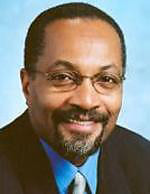
With this in mind Al and I agreed to express our Pan Africanist commitments by holding a legislative hearing at the United Nations that was designed to enable representatives from the Organization of African States, the African National Congress, and other human rights organizations to provide testimony supporting our divestiture bill.
On the day of the hearing, we were inspired and empowered by the overwhelming support articulated from diverse UN delegates and ambassadors who attended the hearing on behalf of our legislative resolution. This testimony most assuredly enabled us to pass the resolution within the New York State Assembly, and to send a message to the congress and the US president that the people of New York were opposed to the Apartheid regime, and supported state and federal divestment from a bastion of racial supremacy.
Years later, on June 20th, 1990, I was given the honor to serve as one of the coordinators of Nelson Mandela’s historic visit to the United States, at which time I organized his first public rally, at Boys and Girls High School, an event that carried the theme, “From Brooklyn to Soweto, One People One Struggle”.
After giving an electrifying speech before thousands of youth, Mandela and the ANC entourage congratulated Al and I for our support and perseverance.
As Al was transitioning to meet our ancestors, I reminded him about this special journey. Al Vann looked at me and smiled like the Cheshire cat that had swallowed the canary. To the end, Albert Vann was a purposeful and joyful Pan Africanist.
Mentor
By Dr. John Flateau
The Honorable Albert Vann was a rare, once-in-an-era, multi-dimensional, driven, charismatic man.
He was a Family man, educator, political navigator, organizer, legislator, politician, coalition builder, institution builder.
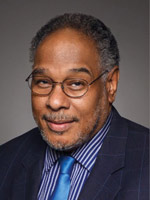
He was a unifier, a leader – grassroots to global.
He was In time, On time, Ahead of his time. Always forging forward fearlessly.
When I told my family of Vann’s passing, my big sister, Dr. Anne, described Vann as my “instrumental mentor” – and her phrase encapsulated so much of what he was about.
Yes. Vann was an “instrumental mentor,” for generations of his students, colleagues, advocates, activist, organizers, politicians, every day people, and the generations to come.
Milestones of his journey were guideposts for me. Among the many: scholar-athlete in high school and college; as a US Marine, he honorably serving his nation.
And there’s more: Vann chose a professional career in education. He taught in local public schools in his beloved Bed-Stuy neighborhood; and on the university level, as well. He recruited and trained future teachers from HBCU schools for the specific purpose of bringing them back home to reinvest in their communities.
In his 20’s, he chose to be active with the Negro Teacher Association, and it became the African-American Teacher’s Assn., which led to his leadership in the struggles for quality public education, community control for Bed-Stuy, Harlem, and Lower East experimental reform districts; leading to the emergence of the landmark NYS Decentralization Law of 1969, giving power to parents and communities — the people — to elect policy-making school boards.
Stopping, yielding, resting was not an option for Vann (and other community leaders). They then coalesced to challenge the Board of Higher Education to establish Medgar Evers College, CUNY; then this coalition created the new unified Boys and Girls High School.
He coalesced with other progressive politicians Major Owens, Roger Green, Velmanette Montgomery and others that systematically accumulated the Coalition for Community Empowerment, encompassing a substantial representation that could influence electoral outcomes at the local, state and national levels, such as congressional, borough president, district attorney, judges, city council, state assembly and senate seats; governors, state attornies; mayoral, comprotroller, public advocate; presidential, congressional and senate elections etc.
Vann understood that civic education and electoral participation are the lifeblood of community empowerment; and the manifestation of that power, gives the people’s representatives, respect and even more power. Vann led Jesse Jackson’s 1984 Presidential Campaign, and New York had the largest Delegation at the Presidential National Convention in America. The Jackson campaign won New York city and laid the ground for David Dinkins to win in 1989, NYC’s 106th Mayor and now Honorable Eric Adams is NYC’s 110th Mayor.
Three times, Vann was elected by his peers to head the NYS Black, Hispanic, Asian Caucus; where they delivered billions of state funds and programs; led the U.S. anti-apartheid divestment movement among state legislatures; protected minorities voting rights at the NewYork City and State levels.
Vann supported successful voting rights lawsuits such as Flateau v. Anderson, Andrews v. Koch, Ashe v. Board of Elections, Morris. Board of Estimate; they stopped elections, forced the rewriting the City Charter to eliminate unfair at-large voting systems etc. and other litigation. Caucus legislation brought about criminal justice reform; more humane child care, mental health, health care, and human services for New Yorkers in need; equitable public funding for quality education; minority and women business development; fair redistricting to protect and expand political empowerment for community colors throughout New York.
New Yorkers and future generations have been enriched by the work and example of Al Vann. One of his favorite phrases best sums up all litanies of his successes: “I give all praise to the Creator. And we all give Power to The People!”
Al Vann lived his life giving power to the people. He was an instrumental mentor and a warrior.
Annette Robinson: “He Expanded the Landscape”
I don’t know if I have words to describe the impact on how Al Vann and his knowledge, information, and intellect were so endearing. He was so thoughtful. Al was a planner and, as a result of that, we were able to plan and pull things together in our community. Many of us sat down at a table to plan different outcomes for our communities.
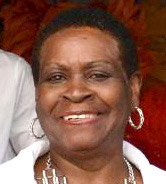
The Coalition for Community Empowerment brought all the electives and community leaders together in the Central Brooklyn community. We looked at how people in certain areas of the Brooklyn Community were not represented. As a result of that, we begin to talk to one another across the district and suggested that they might run for office. To fill the void in those certain areas to have the kind of representation that we thought was important for people of color to have in the community. We looked at social and economic justice, the school situation, health, housing, and all the issues that affected our community. Al was one of the first members of the community school board of district 13. In 1977, I was elected to the school board of district 16. People began getting elected to the community school boards so we would be able to control what was happening in our schools to make the policy decisions for our children.
His efforts were just extraordinary. As a result of Al Vann’s interests, concerns, and intellect, we were able to provide additional districts within the Brooklyn community and throughout the city of New York and New York State. Council districts were instituted. Assembly districts were also created. That made a difference. Al Vann expanded the landscape.
Thank you, Dr. Vann!
Rep. Hakeem Jeffries (NY-08)
“I am deeply saddened by the passing of the Honorable Al Vann, a giant in every sense of the word. Al Vann led the Black empowerment movement in Central Brooklyn, founded institutions that transformed lives, passed groundbreaking legislation in Albany and inspired generations of elected officials to enter public service. Brooklyn loved Al Vann, and he loved Brooklyn.
“The loss of Mr. Vann is a void that we can never fill. But the countless people whose lives were touched by Al Vann, myself included, will forever be inspired to fight for change as a result of his tremendous life, legacy and his leadership.”
Attorney General Letitia James
“After a lifetime of leadership, mentorship, and principle, the honorable Al Vann passed away peacefully last night. While much more will be said about the life and legacy of Al Vann, it is safe to say that Brooklyn and all of New York lost a friend, a leader, and a legend. May he rest in peace and in power.”
NYC Mayor Eric Adams
“Al was a tireless champion of civil rights and Black community empowerment in Central Brooklyn and beyond. He not only impacted the city, but our entire country, and we’re better because of him. He was a giant, and we are all going to miss him.”
Stefani L. Zinerman State Assembly, 56th District
“Dr. Vann’s life work was about the true, holistic liberation of his people. He set the standard and provided a blueprint through the founding of the Vanguard Independent Democratic Association (VIDA), Medgar Evers College, the Community Advisory Board, and an Age-Friendly district. He is the model from which we can glean as we assume the mantle of freedom, charging forth with vigor to achieve equity and liberty.
“This district is forever changed for the better because of his groundbreaking legislation that empowered people like me and people in this district to be the architects of our freedom and to build thriving communities that served our need.”
City Council Speaker Adrienne Adams
“I am devastated and heartbroken by the loss of former Council Member and Assembly Member Albert Vann. He was a dedicated public servant, an educator, a strong advocate for the empowerment of Black communities, and a steadfast champion of Central Brooklyn. Council Member Vann mentored generations of leaders in New York City and faithfully served his constituents for nearly four decades in elected office. On behalf of the entire City Council, I extend my condolences to Council Member Vann’s family, friends, and community. We will miss him dearly and remember his legacy. May he rest in peace.”
The Staff at the Center for Black Literature at
Medgar Evers College Mourns the Passing of
“A Wise, Strategic Leader”
On behalf of the family and friends of the Center for Black Literature, we offer our condolences to the family of Dr. Al Vann, a giant and fearless leader in our community. Al Vann was a wise, observant, analytical, strategic, visionary, and humble leader. He was a beacon in our community and served it in many ways: as an elected official, institution builder, educator, and political strategist. He was one of the founders of our beloved Medgar Evers College. He also helped to found Boys and Girls High School and the Vannguard Urban Improvement Association. The impact of his leadership was widespread and he influenced many elected and government officials who are still serving today.
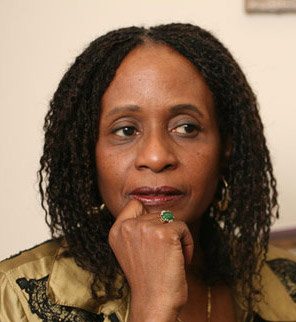
I was introduced to Al Vann 50 years ago in 1972 when I was recruited to work in District 13. When we began to work we were told “Do not join the United Federation of Teachers. They do not have the best interests of Black children at heart.” I will never forget that statement. We were encouraged to join instead the African-American Teachers Association (ATA). Al Vann, along with Ancestor Jitu Weusi, was the pivotal leader in that monumental Black educators’ organization.
As a young professional, I became very active with the young adult division of the National Association of Negro Business and Professional Women’s Clubs and became President of the Brooklyn chapter of Minority Politically Women. We were extremely active and it was at that point that I realized the importance of being involved in the political arena. VIDA, the Vannguard Independent Democratic Association was the example of a young progressive force and that time; and we began to go to the legislative caucus sessions as part of our work and later participated in the Coalition for Community Empowerment which was co-founded by Vann. Vann was a leader in this organization and was also a former Chair of the Coalition for a Just New York and Chair of New Yorkers for Jesse Jackson, the largest group of delegates pledged to Jackson in the nation during the 1984 Presidential campaign. This work had an impact on the historic election of David Dinkins as the first Black mayor of New York City and had an impact on the support for the candidacy of Barack Obama.
The Center for Black Literature was very pleased to honor Al Vann as a founder of Medgar Evers College at its 10th anniversary celebration. He always worked with us to support both the Center and Medgar Evers College. We were also pleased when Medgar Evers College presented Al Vann with an Honorary Doctorate Degree in Humane Letters. We know the College and University will also honor his passing in appropriate and sustaining ways to preserve his legacy.
On June 27, 2022, Dr. Al Vann sent a farewell message to the community. In that letter, he stated that he was in good spirits and would continue to live his life as fully as possible. His statement was inspirational and spoke to the man and leader he was and has been for decades. He was making “good trouble” and his commitment to the community and to the lives of Black people was unwavering. I admired how in the midst of the obstacles he was facing he continued to embody servant leadership and how he maintained a nurturing embrace.
John Lewis told us:
“Take a long, hard look down the road you will have to travel once you have made a commitment to work for change. Know that this transformation will not happen right away. Change often takes time. It rarely happens all at once.”
Dr. Al Vann, our leader, reminded us of that “long road” by continuing to work on the path towards empowerment for our community. We can do that now by continuing to work on addressing the erosion of democracy and democratic values in our nation. We must look at what we can do to ensure that people come up to vote. We must make sure that our youth are socially and politically aware and understand the importance and power of their voices and actions. We must collectively advocate for racial, social, and environmental justice. Dr. Vann called us to action. There is power in collective voices and actions. We are in a position to effect change. Let us not forget the Call to Action that he gave us.
A Great Tree has fallen. Let us remember to always say his name and honor his rich and enduring legacy.
Sage, Gatherer, Mastermind
When Al Vann and I last spoke, we talked about one of the highlights of his career, the Black Empowerment Conference.
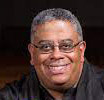
Gary Simpson
It was so well thought out. All the planks and platforms would contribute to the empowerment of the Black community in central Brooklyn. Al was the mastermind behind it. The organizer, the gatherer of all the people who were going to make presentations. We had been talking before the pandemic about the need for a second conference because it was such an important time for us in Central Brooklyn. Talking about ways to empower the people of Bedford Stuyvesant. Al was not just a gatherer of the convention. He also was the person who could calm down people with different opinions. He was more than a facilitator. He was respected as a sage, a wise person who everybody knew. His reputation and the yeoman’s work he had done across the years showed that Bedford Stuyvesant was at the center of his heart.
The meeting was held on Juneteenth, this was before it was made a national holiday. That was done intentionally to base it on Juneteenth so it could be understood as part of the liberation of Black people from conditions of slavery, that still existed in economics health, education, and housing. I think all credit goes to Al for visioning that and harnessing so many of us who have not had the opportunity to work together. And given the success that it had and we need to do another one to be honest because the economic realities have changed in Central Brooklyn, because of gentrification, and the pandemic and the way in which that has given us an opportunity to restart.
When I came to Brooklyn in 1990 to work full-time at the church, there were legends of the radical Al Vann and Jitu Weusi who were trying to make a statement in representative politics about the uniqueness and the necessity of including Black voices in the body politics of the city.
Al had come to the place where he understood very well how to get that done. And became a very important part of the infrastructure of New York City politics.
In 1992, I would have been 29, when the Democrats had the convention in New York City to nominate Bill Clinton, Al said I want you to come and gave me a pass. I had just been at the church for two years and had not established any clear paths. I was still learning the church, but Al brought me in to see the political responsibility in Brooklyn at a very young age. I like to say Al gave me an introduction to the larger necessities of politics, not only in Brooklyn itself but also how it fits in the national conversation of politics.
When you talk about Black Brooklyn politics, Al Vann and his good friend Annette Robinson worked on bringing political power and all of its implications to central Brooklyn. Al gave me my introduction to Brooklyn politics as a pre-30-year-old to come and see politics at the highest level at the convention.
All of that is to say, and I’m sure if you talk to other people who have been engaged in community advancement, I’m sure I’m not the only person Al mentored and pulled along and inspired to get in there and do something for the betterment of Brooklyn and central Brooklyn particularly.
Because Al was not just a friend of some in Central Brooklyn, he loved Central Brooklyn and was a friend of all people who were interested in making it strong, keeping it healthy and sustainable.
Al Vann will be sorely missed. I am glad he passed this way. I am certain there are a number of people who have been mentored, counseled, advised, strengthened, and inspired by his words and his presence. And we owe a great debt to him. Hopefully, his legacy will continue in the lives of those of us who have committed to Central Brooklyn and its continued advancement.
Restoration Celebrates Beloved Founding Member of The Board of Directors
Bedford Stuyvesant Restoration Corporation mourns the loss of the Honorable Al Vann, former New York Assemblyman, and former New York City Councilman for the 36th District who passed away on July 14, 2022. Al Vann was a beloved founding member of Restoration’s board of directors and Brooklynite who mentored younger generations of up-and-coming leaders in New York politics and within the grassroots community.
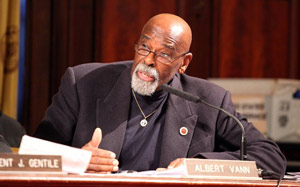
Our 50-year relationship with Al began during his tenure on our board and extended into his work as a state Assemblyman (1975-2001) and NYC Councilman (2002-2013), having retired due to expired term limits.
His legacy and achievements will forever be tethered to Restoration’s mission to improve the lives of Black people who are locked out of opportunities to build wealth through unfair lending practices, employment, and other discriminatory policies. He founded and led the African American Teachers Association and argued successfully for the diversification of educators that resulted in the recruitment of more black teachers in marginalized Brooklyn schools and was co-founder of CUNY’s Medgar Evers College.
Al Vann was the ultimate hometown hero. Before launching his political career, he rose to the rank of sergeant in the United States Marine Corps and later earned his bachelor’s and master’s degree in education, taught in New York City public schools, and became an administrator.
Throughout his service in the New York City Council serving on the education, economic development, finance, health, land use, rules, privileges, and election committees, he always kept Restoration top of mind and remained a confidant and friend to our past presidents and chief executive officers. And much of the progress we have made and sustained over the decades wouldn’t have been possible if not for stalwart advocates like Al Vann.
We celebrate his legacy as a civil rights advocate, legend, American hero, and stellar community organizer dedicated to justice and extend our deepest condolences to his family and friends.



